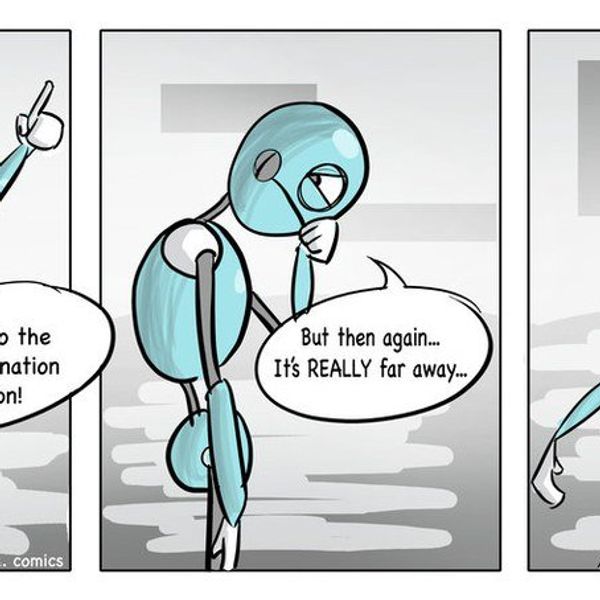In my organic chemistry synthesis lab the other day, I severely messed up extracting a chemical into a syringe, spilling a toxic chemical named dichloromethane (DCM) in the lab. My graduate student instructor reprimanded me, and my embarrassment and subsequent frustration at my incompetence led me to mess up multiple later parts of the experiment, and only deepened my insecurities about my lab technique and knowledge.
In retrospect, this was simply part of a learning process. As a relatively volatile and high strung person, I tend to respond poorly to adversity and failure. The same had happened the first time I drove after obtaining my Learner’s Permit, in which my driving instructor needed to help me steer the wheel and used the instructor brakes at least 12 times to stop us from getting into an accident.
But it’s also easy to just look back and say it was part of the “learning process.” The feeling of incompetence and failure is not nice by any means. Obviously, I was very distraught with myself at the time, and procedure steps that normally would have come naturally to me became perceived as exponentially harder. “I can’t do this,” I kept thinking. This feeling is commonly known as simply being flustered.
In the two cases I mentioned, my lack of ability not only destroyed my confidence at the time, but also nearly compromised the safety of those around me. My fellow drivers-ed classmates tightened their seat belts each time I made a turn or stopped at a red light. If I’d spilled dichloromethane in a different direction and splashed someone, the person spilled would have needed to wash the spilled area of skin for 15 minutes. These are just inconveniences; if I’d messed up more severely, their lives could have been in danger.
Fortunately, being flustered in these situations only led to a stronger determination to excel at the task at hand at a later hand. I never wanted to drive that poorly ever again. I never want to mess up that reaction that badly. That summer, I practiced driving multiple times a day, persistently annoying my mom to accompany me on drives to Costco or cross country practice. I don’t claim to be an excellent driver, but without the attitude I gained from being such a bad driver the first time on the wheel, I would certainly be much worse than I am now. I have even reviewed my lab notebook numerous times to perform the reaction better this week.
We all know that “it’s going to get better” and while you’re separated from the situation, you know you’re going to end up being fine. But that’s probably not why you’re reading this article. How do we cope when we’re having a mental breakdown and become flustered?
My first piece of advice is to “own it”. Proceed with the attitude that “I messed up, but there’s still a lot left to do. Whether that’s failing the first exam in a class, screwing up your first job interview, or having a horrible first draft of a paper, there’s still progress you can make after your initial mistake and failure. Don’t be afraid to ask for help, especially if you have a superior who’s available to help you. It’s understandable that the worst thing you want to do when flustered is to admit a failure and be even more of an embarrassment. But if there’s even a hint of uncertainty, it’s a waste not to use a resource to clarify that when it is readily available. In my organic chemistry reaction, there were several steps I would have effortlessly completed had I just asked my graduate instructor for help.
My second piece of advice is to take small steps towards positive improvement. The worst part about being flustered is that your confidence is destroyed, and that leads you to perform worst than you would in a normal situation. Say you have an absurd amount of homework on a given day, and you have little to no motivation or confidence to do any of it after a hard day of work and classes. Normally, I would do what I perceive as the easiest assignment first, and then finish with the hardest assignment. The same applies on an exam if you're stuck with a difficult question: skip it and do the ones you know first. That way, you can come back to the most difficult assignment or question encouraged and a better chance of pulling it off. Even if you don't, getting 75% done is much better than 0%
In colloquial terms, when you're flustered, there's no need to take any more L's. Give yourself the W's you deserve.





















